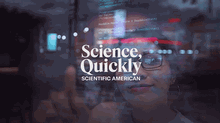 |
| October 24, 2023 |
You may have heard that popular generative AI systems, such as ChatGPT, have been trained on "the whole internet." But what exactly does that mean? The companies that develop these tools might draw data from all public online posts, including "anything on popular photograph-sharing site Flickr, online marketplaces, voter registration databases, government webpages, Wikipedia, Reddit, research repositories, news outlets and academic institutions," among other sources. And as this week's lead story shows, some of that publicly available data can include incredibly sensitive personal information, such as private medical images. |
| |
 |
| |
| |
| |
| Space Exploration Space Manufacturing is Not Science Fiction A Stanford researcher is growing crystals on the International Space Station to withstand the extreme environments of Venus. |  | By Jason Drakeford,Tulika Bose,Kelso Harper,Jeffery DelViscio | | | |
| |
| |
| |
| |
| |
| |
| QUOTE OF THE DAY
 "We decided to put ChatGPT to the test and find out how it fared when asked about news stories. Did the chatbot offer accurate and up-to-date information? How would it handle contentious topics? How would it handle requests in languages other than English? What sources would it use?" Marina Adami, NiemanLab | |
FROM THE ARCHIVE
 | | 'AI Anxiety' Is on the Rise--Here's How to Manage It Rapid advances in generative artificial intelligence have prompted big questions about the future of work and even human creativity. Experts have suggestions for how to manage all these unknowns By Lauren Leffer | October 2023 | | |
LATEST ISSUES
 |
| |
| Questions? Comments?  | |
| Download the Scientific American App |
| |
| |





















